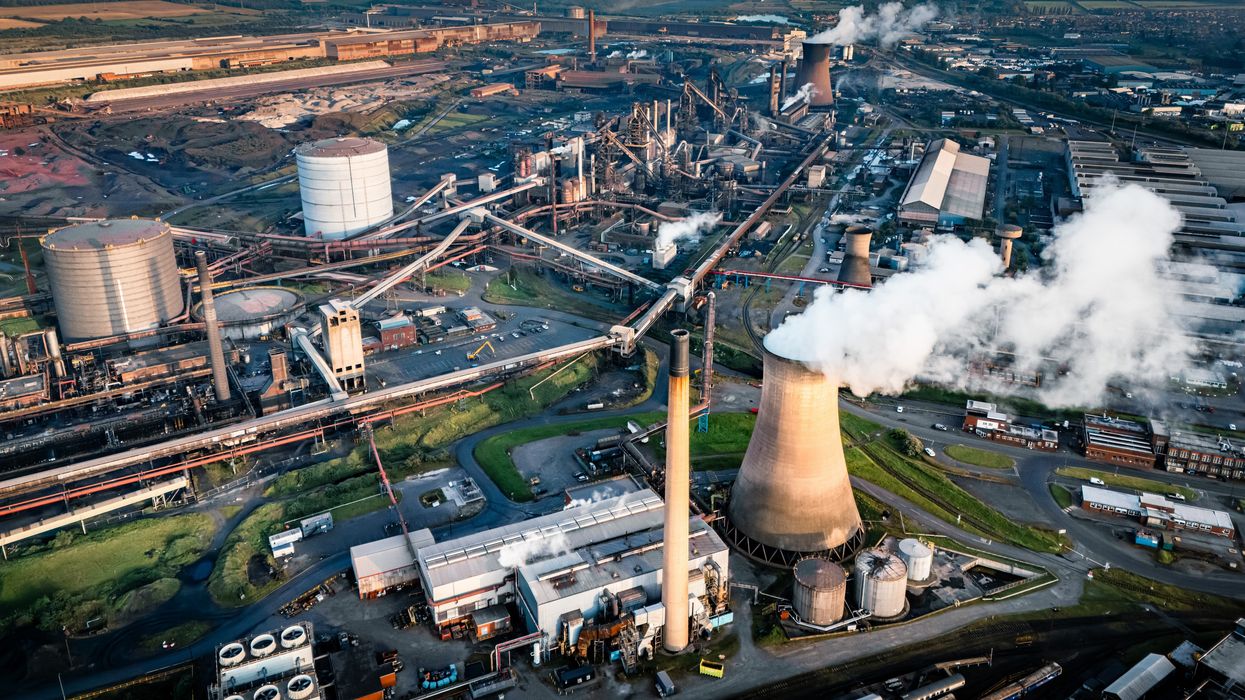THE UK government has taken control of British Steel after passing emergency legislation to stop the closure of the country’s last factory capable of producing steel from raw materials.
The plant, owned by Chinese company Jingye, was facing imminent shutdown. Prime minister Keir Starmer said the government "stepped in to save British Steel" to prevent its blast furnaces from going out.
Parliament met on Saturday in a rare weekend session and passed the law without opposition.
The measure allows the government to take over the Scunthorpe site, which employs several thousand people and produces steel used in construction and rail transport.
The government considered the possible closure a threat to Britain’s long-term economic security, following a steady decline in the domestic steel industry.
Officials were prepared to take over the site on Saturday evening after the emergency bill became law, UK media reported.
Following the law’s approval, Starmer said the government was "turning the page on a decade of decline" and "acting to protect the jobs of thousands of workers." He added, "all options are on the table to secure the future of the industry," after a minister said nationalisation could be a likely next step.
Earlier in the day, Starmer travelled to the region and told steelworkers gathered in a village hall near the site that the move was "in the national interest". He called the action "pretty unprecedented" and said it would help secure "a future for steel" in the UK.
"The most important thing is we've got control of the site, we can make the decisions about what happens, and that means that those blast furnaces will stay on," he said.
The decision followed protests at the site and reports that workers blocked executives from Chinese owners Jingye from entering key parts of the plant on Saturday morning.
Delegation turned away
The Times reported that British Steel workers prevented a "delegation of Chinese executives" from accessing critical parts of the plant. Police confirmed that officers were present "following a suspected breach of the peace," but no arrests were made.
Nationalisation remains possible
When asked in parliament whether the company would be nationalised, business and trade secretary Jonathan Reynolds said that while Saturday’s law did not transfer ownership, state ownership "remains on the table" and may be the "likely option".
He clarified that the legislation gives the government limited powers for now, and any transfer of ownership would need to be dealt with later.
Reynolds said no private company had come forward to invest in the plant. Jingye, which bought British Steel in 2020, has said it is not financially viable to continue running the two blast furnaces, putting up to 2,700 jobs at risk.
The company says it has invested more than £1.2 billion in operations but is losing around £700,000 a day.
Reynolds said "the effective market value of this company is zero," and that Jingye had suggested continuing operations in the UK by supplying slab steel from China.
The government has faced criticism from the opposition Conservative Party over how it handled the talks. Some left-wing politicians and unions have also pushed for full nationalisation.
Reynolds said the government had offered to buy raw materials to keep operations going, without any financial loss to Jingye, but the company refused.
He said Jingye demanded that the UK "transfer hundreds of millions of pounds to them, without any conditions to stop that money and potentially other assets being immediately transferred to China". Jingye also rejected a condition to maintain the blast furnaces.
The new law gives the government power to take control of assets and enforce compliance with orders to keep the blast furnaces running, including the possibility of criminal sanctions.
Emergency session and industry pressures
An aerial view of the British Steel Scunthorpe site on September 13, 2024. (Photo: Getty Images)
 An aerial view of the British Steel Scunthorpe site on September 13, 2024. (Photo: Getty Images)
An aerial view of the British Steel Scunthorpe site on September 13, 2024. (Photo: Getty Images)Saturday’s session of parliament was the first held on a weekend since the Falklands War in 1982. MPs had left for Easter recess on Tuesday and were not due back until April 22.
The Scunthorpe site is now the UK’s last virgin steel plant — one that uses raw materials instead of recycled steel — after Tata’s Port Talbot plant closed its blast furnace last year.
British Steel has partly blamed its problems on tariffs introduced by US President Donald Trump. The company, along with others in Europe, has also been under pressure from cheaper steel imports from Asia.
British Steel traces its origins back to the Industrial Revolution and was officially formed in 1967 when the Labour government nationalised the steel industry, which then employed nearly 270,000 people.
(With inputs from AFP)





